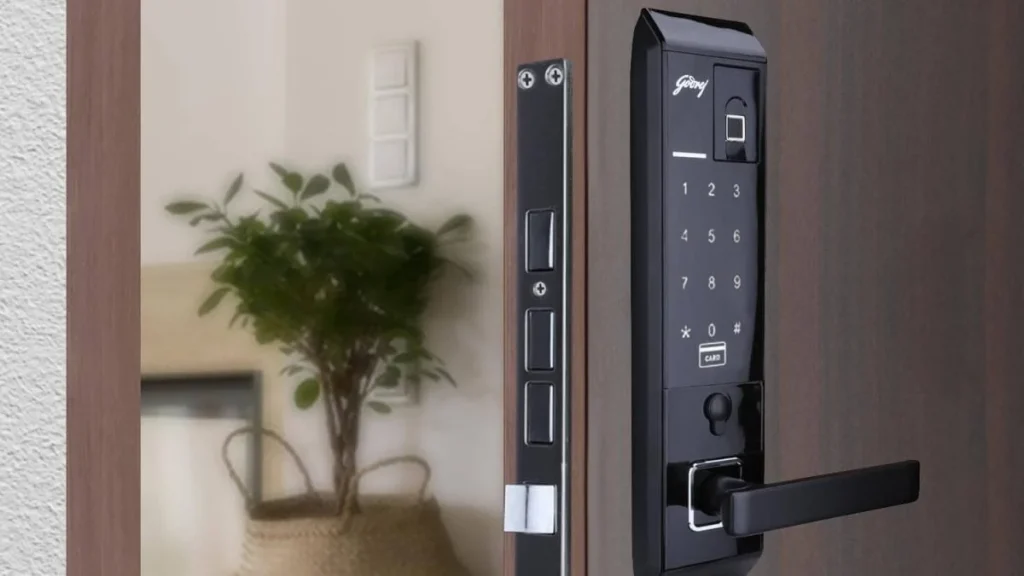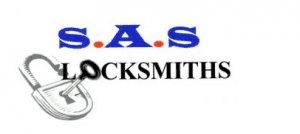Getting a spare key in Melbourne is easier and more important than most people realise. Whether you’re securing your home, your car, or even your office, having an extra key can save time, stress, and money. From basic house keys to complex automotive fobs and smart locks, Key Duplication in Melbourne is a booming service that caters to a wide variety of needs.
So, what should you expect when duplicating a key? It really comes down to three things: the type of key, the cost involved, and the level of security you’re aiming for. This guide covers everything from standard keys cut at hardware stores, to restricted keys used in high-security buildings, to the latest in smart locking systems. If you’re wondering about the costs, safety, or best duplication method, this article has you covered.
Why bother with key duplication? Simple: it’s convenience and peace of mind. A spare key can save the day if you’re locked out, share access with family, or prepare for new flatmates. It’s like having an insurance policy for your locks. But key duplication also raises questions about security (could someone else copy your key?) and costs (are you paying through the nose?). We’ll cover it all.
Quick Look: Why a Spare Key Matters
Having a backup key isn’t just about avoiding lockouts. It also helps when you’re giving access to tradies, house guests, or new tenants. Key Duplication in Melbourne also keeps daily life running smoothly if a key gets lost or damaged. And in busy households or shared living spaces, key duplication means everyone can get in without waiting around. For more on Victorian rules around locks and keys, check out the official guidance from Consumer Affairs Victoria: Locks and keys advice.
Key Duplication Costs in Melbourne
First off, costs vary widely by key type. A plain, standard door key is cheap to copy, but high-tech car or restricted keys can be pricey. For a rough idea, Melbourne locksmiths often charge about $4–$25 per standard key duplicate. Think of your basic Yale or Chubb house key – usually just a few dollars each. On the other hand, automotive keys and remotes (especially with transponder chips or remote fobs) run from about $50 up to $300 or more. That’s because these keys need programming or special equipment.
To make it clearer, here’s a quick table of typical prices in Melbourne:
| Key Type | Typical Cost (AUD) |
|---|---|
| Standard house key | $4 – $25 |
| Basic car key (no chip) | $50 – $100 |
| Car key with transponder | $100 – $300 |
| High-security key | Often $30+ (varies by maker) |
Table: Approximate key duplication costs in Melbourne (per key) based on locksmith price ranges.
Several factors influence these prices:
- Key complexity: Simple keys are cheap; keys with chips, remotes, or complex cuts cost more (sometimes extra visit or programming fees).
- Material: Brass/nickel keys are cheaper to cut than hardened steel or specialty alloys.
- Provider: A hardware store or kiosk might charge less than a mobile locksmith (though quality may vary).
For example, locksmith blogs note that duplicating a basic key might be under $10, while a modern car key could easily cost over $100. It’s always smart to call ahead and ask. Some locksmiths even give bulk discounts (handy if you need spares for a multi-unit property). A Melbourne hardware store worker using a key-cutting machine. Shops like Bunnings have in-store key cutting services for common keys, often at low prices.
Types of Keys and Where to Duplicate Them
Not all keys are created equal. Here are the common ones you’ll encounter in Melbourne:
- House & Apartment Keys: The everyday “Yale-style” or “Chubb” keys for your front door, bedroom, letterbox, etc. You can get these cut at locksmiths, hardware stores (e.g. Bunnings, Mitre 10), or key kiosks. These are the cheapest duplicates.
- Automotive Keys: These range from simple car keys to modern fobs. Older cars with basic keys only need cutting. But newer models often have transponder chips or remote fobs. Duplicating these usually means buying a blank, cutting, and then programming the chip. Expect to pay much more, and typically you’ll need a professional locksmith or dealership.
- Smart Keys and Fobs: Many cars and homes now have “smart” keys (no metal cut, just a chip inside) or keycards. Duplicating these often requires specialized equipment or reprogramming, so it’s usually done by dealers or specialized locksmiths. It can be very expensive if you’ve lost all keys.
- High-Security / Restricted Keys: Some commercial buildings or high-end homes use patented key systems (like Medeco, ASSA, etc.) that say “do not duplicate”. These are designed so only the original locksmith can make copies, often requiring verification. They cost more but greatly increase security.
Where to get duplicates: Your options in Melbourne include:
- Locksmiths (brick-and-mortar or mobile): Experienced and versatile, they can duplicate most keys on the spot and handle tricky cases (car keys, security cylinders, etc.).
- Hardware stores: Big chains (Bunnings, Mitre 10, Home Hardware) often have key cutting machines for standard keys. It’s quick and cheap – just watch the machine cut in seconds.
- Key kiosks: You’ve seen them at shopping centers – automated machines that cut keys for you, usually fast and low-cost. They handle basic profiles only.
- Dealerships: For car keys or highly specialized keys, dealers can supply and program new keys, albeit at a premium.
- Online / Mail-order: Some services let you mail a key or a photo to be duplicated. (Warning: there are security risks if someone intercepts your key or photo!)
Each option has trade-offs. A locksmith or dealership can do complex keys and offer advice. A hardware store is quick and cheap for simple keys. For example, Bunnings staff can cut a standard key in minutes (often under $5) while you shop.
Security Considerations and Risks
While getting extra keys is handy, loose keys carry security risks. Think of each duplicate as a potential extra entry point into your home or car. Here are some things to keep in mind:
- Who has copies? Only give spares to people you trust. Keep track: each duplicate key (especially with smart-chip keys) should ideally be logged or numbered.
- “Do Not Duplicate” labels: Many keys say “do not duplicate,” but this is a request, not a legal block. It won’t stop a determined person or machine from copying the key.
- Lost keys: If a copy is lost or stolen, consider rekeying the locks. Continuing to use old keys means anyone who finds one can break in. It’s unpleasant but safer to change locks than risk a burglary.
- Copy from photos: Shockingly, any photo of your key might be enough for a skilled thief to replicate it. Specialized apps and services can decode a key from a clear image. So never post a visible picture of your keys on social media or leave them exposed. Even a quick snap with a smartphone could expose your home.
- Restricted key systems: For maximum security, some buildings use patented keys that only certain locksmiths can copy. These systems are “pick-proof” with unique designs – great for businesses or high-end homes. Each new key is tracked by the issuing locksmith, so unauthorized copies are very hard to get.
If unauthorized duplication is your worry, talk to a locksmith about high-security keys. Using restricted or “do not duplicate” keys can add a layer of protection. Industry experts note that unauthorized copies can lead to theft or burglary, so preventing them is crucial. Solutions include patented keyways or even adding locks with audit trails. The upshot: treat your keys like your passwords – limit who sees them, and update them (rekey) if compromised.
Smart Key Solutions
Traditional keys are great, but Melbourne (and the world) is increasingly going keyless. Smart locks and digital keys offer stylish, modern alternatives that eliminate physical duplication altogether.
- Smart locks: These door locks work with Bluetooth, Wi-Fi, or fingerprint readers. You might unlock your door with a smartphone app or code instead of a metal key. A market report notes that Australian smart locks (with features like biometrics and remote access) are booming, and they remove the worry of lost or copied keys.
- Keyless entry systems: Common in apartments and offices – you enter a PIN or use a fob/card. The building manager controls key issuance centrally (you don’t physically duplicate the key; they grant or revoke electronic access).
- Digital car keys: Many newer cars let you lock/unlock via smartphone apps or special chips. Losing such keys often means resetting with the manufacturer, but it adds convenience (and usually requires authentication to prevent random copy).
Modern smart solutions offer remote monitoring (see who entered when), time-limited access for guests, and integration with home automation. For example, you can send your housemate a one-time unlock code or check on your door status from anywhere.
In short, these technologies make the old spare key redundant. As one industry summary points out, smart locks can “eliminate the need for key duplication or replacement, saving both time and money”.

Adopting smart locks is a trend, but they come at a cost (often $200+ for a good unit) and require installation. Yet they also increase security: no key means no unauthorized copy, and many units auto-lock or send alerts. If you’re building or renovating, consider these tech-forward options.
Conclusion
Getting a spare key is simple insurance for your daily life – whether it’s cutting a few extra copies of your house key or investing in a smart solution to remove keys entirely. In Melbourne, you have plenty of options: from a quick $5 hardware-store duplicate to a high-end locksmith handling transponder car keys. Remember the trade-offs: cheaper is often faster but may sacrifice quality. Always verify your duplicate works smoothly before you rely on it.
Security is the flip side: too many copies lying around can bite you back. Monitor who has spares, think twice about posting that keychain selfie, and consider rekeying if a key goes missing. For ultimate peace of mind, explore high-security key systems or smart locks – they may cost more upfront but protect against unauthorized duplication.
Next time you think “I should really get a spare key made”, walk into a local locksmith or hardware store in Melbourne and ask about key duplication services. With the right approach, you’ll secure your home or car without breaking the bank (or the trust).
Frequently Asked Questions:
How much does key duplication cost in Melbourne?
It varies. A basic house key copy can be as low as a few dollars, while high-tech car or security keys often cost $100–$300.
Where can I get keys duplicated in Melbourne?
You can go to locksmiths (store or mobile), hardware stores (like Bunnings), or automated kiosks in malls. Locksmiths handle all key types; stores/kiosks do standard keys cheaply.
Is it safe to make duplicate keys?
Yes, with precautions. Use trusted providers. Keep track of who has your spares. Avoid sharing images of your keys, since they can be copied from photos.
Can anyone duplicate a modern car key or smart key?
Not easily. Many modern keys have chips or encryption. Professionals with the right equipment can duplicate them, usually at higher cost. Smart locks or keyless cars often require authorized programming, making unauthorized copies very difficult.
Should I consider a smart lock to avoid key duplication?
Smart locks are a great option if you want to eliminate physical keys. They let you unlock via code or phone, track entries, and remove the risk of copied keys. They cost more upfront but add convenience and security.

